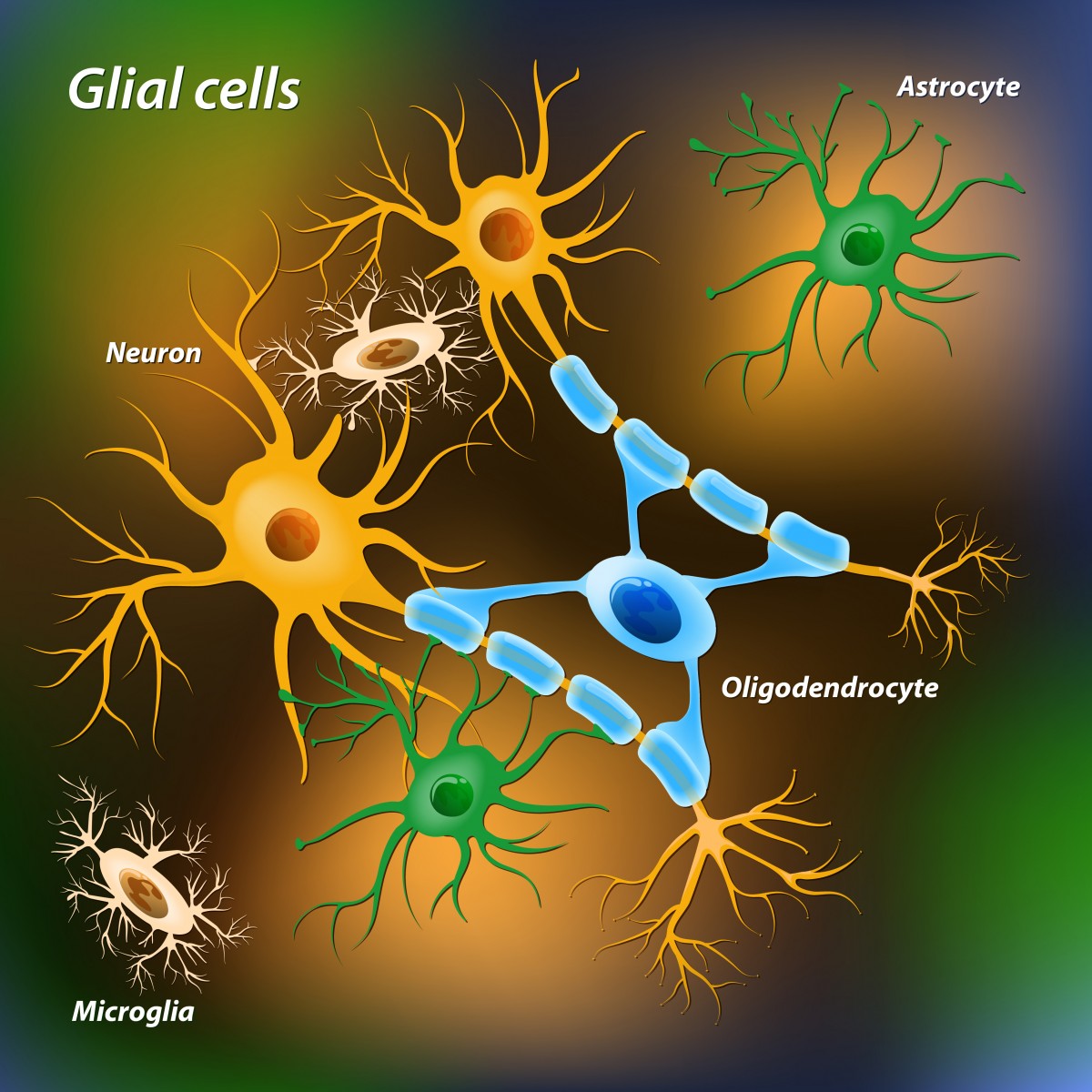Glial Cells Found to Play a Role in Pain Sensation in MS, Other Disorders

Researchers have discovered that glial cells can also participate in pain sensation and enhance it in several disorders, including multiple sclerosis (MS).
The study, “Gliogenic LTP spreads widely in nociceptive pathways,” was published in the journal Science.
Our sensation of pain is processed in the brain after neuronal circuits conduct the excitation of cells at the site of tissue damage to the spinal cord. This is where information is pre-processed and then transmitted to the brain, where the sensation of pain is finally produced. This process is controlled by nerve cells (also known as neurons).
Until now, this was the accepted hypothesis.
However, scientists at the Division of Neurophysiology at MedUni Vienna’s Center for Brain Research recently found that non-neuronal cells, called glial cells, may also participate in the process.
Glial cells are not neurons, but they also perform an important role. They maintain homeostasis, form myelin, and provide support and protection for neurons. Researchers are now reporting that glial cells are also activated in response to stimuli such as pain, and can contribute to cell signaling by releasing inflammatory cytokines, for example. Cytokines are small proteins that serve as molecular messengers between cells.
“The activation of glial cells results in a pain-amplifying effect, as well as spreading the pain to previously unaffected parts of the body. For the very first time, our study provides a biological explanation for this and for other hitherto unexplained pain phenomena in medicine,” Jürgen Sandkühler, the study’s lead author and head of the Division of Neurophysiology at MedUni Vienna’s Center for Brain Research, said in a press release.
Activation of glial cells can be triggered as a result of neuroinflammatory diseases of the brain, environmental factors, and maybe even by lifestyle, according to Sandkühler. These include depression, anxiety disorders and chronic stress, MS or Alzheimer’s disease, diabetes, as well as lack of exercise and poor diet.
“Glial cells are an important factor in ensuring the equilibrium of a person’s neuroinflammatory system,” he said.
Minor changes in our lifestyle can make a huge impact.
“It is therefore in our own hands: Thirty minutes of moderate exercise three or four times a week, a healthy diet, and avoiding putting on excess weight can make a huge difference,” Sandkühler said.






